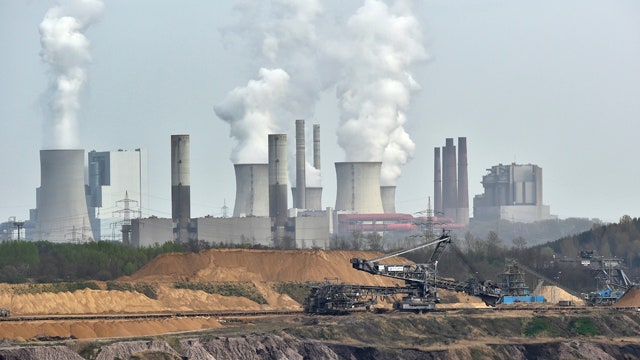New report challenges U.N. findings on climate change
Mike Tobin reports from Chicago, Illinois
A U.N.-commissioned panel says climate change is hurting the growth of crops, affecting the quality of water supplies and forcing wildlife to change the way it lives – but what if it’s all just smoke and mirrors?
A new report from the Nongovernmental International Panel on Climate Change (NIPCC), written by an international collection of scientists and published by the conservative Heartland Institute, claims just that, declaring that humanity's impact on climate is not causing substantial harm to the Earth.
“All across the planet, the historical increase in the atmosphere’s CO2 concentration has stimulated vegetative productivity,” reads a portion of the 1,063-page report, called “Climate Change Reconsidered II: Biological Impacts.” “This observed stimulation, or greening of the Earth, has occurred in spite of many real and imagined assaults on Earth’s vegetation, including fires, disease, pest outbreaks, deforestation and climatic change.”
The Heartland Institute says more than 30 scientists served as authors and reviewers for the new report, which it claims cites more than 1,000 peer-reviewed studies supporting the belief that climate change is not detrimental to the biosphere. The Heartland Institute describes itself as a think tank promoting public policy "based on individual liberty, limited government and free markets."
The panel of scientists says human impact on the global climate is small, changing temperatures are within a historic scope of temperature variables and there is no net harm to human health of the production of food.
The findings are a stark contrast to the messages from the UN’s Intergovernmental Panel on Climate Change (IPCC), which in a report released last week concluded that in many regions of the earth, changing precipitation and melting snow are altering hydrological systems, which negatively impact the quantity of water resources.
The IPCC’s report also states that climate change is forcing terrestrial, freshwater and marine species to shift their geographical ranges and migration patterns.
But the Heartland Institute says the scientific community is under tremendous financial and peer pressure to reach the conclusion that global industry is damaging the environment.
“Ethical standards have been lowered, peer review has been corrupted, and we can’t trust peers in our most prestigious journals anymore,” Joe Bast, President and CEO of Heartland Institute, told Fox News.
However, scientists are questioning the credibility of the NIPCC’s findings.
Donald Wuebbels, a professor of atmospheric science at the University of Indiana Champaign Urbana, says the report is not peer-reviewed.
“Mostly it’s a bunch of old, retired guys that got together and wrote a report for the Heartland Institute that is basically full of misinformation,” he told Fox News.
The Heartland Institute, which is going to publicly roll out the report Wednesday in Washington, D.C., insists that it is peer-reviewed.
Meanwhile, government officials and top climate scientists are meeting in Berlin this week to approve a draft U.N. study on fossil fuel emissions.
The study asserts that world powers are running out of time to cut their use of high-polluting fossil fuels and stay below agreed limits on global warming, according to Reuters.
The study says nations will have to make drastic pullbacks of greenhouse gas emissions to limit global warming to less than 3.6 degrees Fahrenheit over pre-industrial times.
The draft study outlines ways to cut emissions and boost low-carbon energy, such as nuclear and solar power, Reuters reports.
Fox News’ Mike Tobin contributed to this report.









































